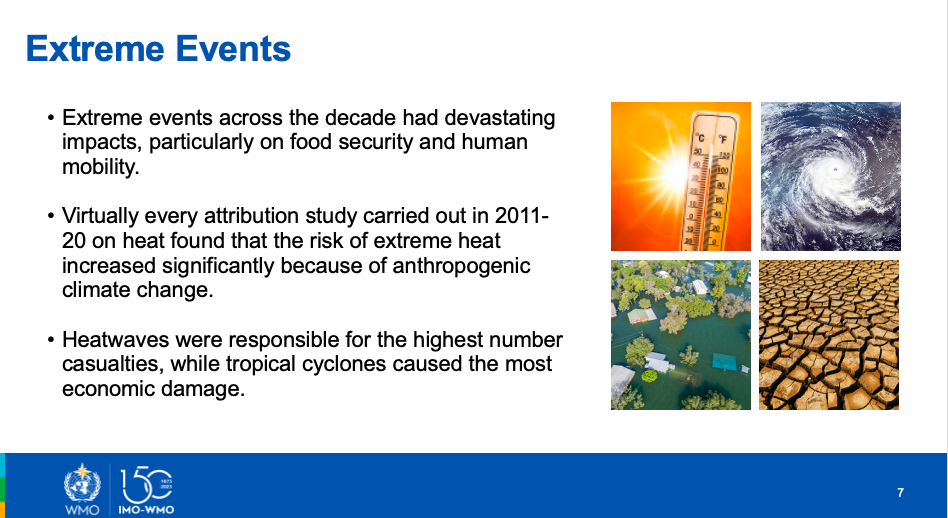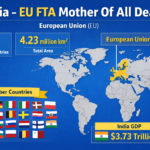WMO: Unprecedented Warming Expected Through 2029

The World Meteorological Organization (WMO) released Global Annual to Decadal Climate Update. The report highlighted the following
- It underlined the dangers of the planet edging closer to irreversible climate thresholds
- Global temperatures poised to remain at or near record highs over the next five years.( 2025 and 2029)
- An 86 per cent chance that at least one year in this period would exceed the Paris Agreement’s 1.5°C warming threshold.
- Estimated a 70 per cent likelihood that the five-year average itself would cross the 1.5°C limit.
- the Arctic warming at more than three times the global average.
2024 confirmed as the hottest on record.
WMO
It originated from the International Meteorological Organization (IMO), founded in 1873. Established in 1950, WMO became the specialized agency of the United Nations in 1951. Its area of operation is for meteorology (weather and climate), operational hydrology and related geophysical sciences. Its headquarters is in Geneva, Switzerland. It is a member of the United Nations Development Group.
LEARNING FROM HOME/ WITHOUT CLASSES/ BASICS
ANTHROPOGENIC CLIMATE CHANGE a change caused by human activity.
CLIMATE CHANGE
Refers to any change in climate over time whether due to natural variability or as a result of human activity.
Global warming is the long-term heating of Earth’s climate system observed since the pre-industrial period (between 1850 and 1900) due to human activities, primarily fossil fuel burning, which increases heat-trapping greenhouse gas levels in Earth’s atmosphere. The term frequently used interchangeably with the term climate change, though the latter refers to both human- and naturally-produced warming and the effects it has on our planet.
Greenhouse gases allow sunlight (shortwave radiation) to pass through the atmosphere freely, where it is then partially absorbed by the surface of the Earth. Greenhouse gases are able to trap heat (longwave radiation) in the atmosphere, keeping the Earth’s surface warmer than it would be if they were not present. These gases are the fundamental cause of the greenhouse effect. Increases in the number of greenhouse gases in the atmosphere enhances the greenhouse effect which is creating global warming and consequently climate change.
So the more greenhouse gases you have in the atmosphere, the more heat stays on Earth. The principal forcing greenhouse gases are: Carbon dioxide (CO2); Methane (CH4); Nitrous oxide (N2O); Fluorinated gases.






0 Comments